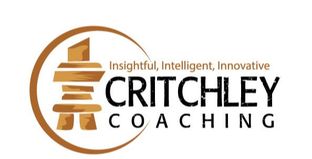
I love human behaviour. I love learning about people, understanding what makes us behave the way we do, and using this learning to help me move toward being the person I want to become. I do my best to apply the learning to my own life as well as to share it with my clients.
One of the things I’ve been reading and learning about lately is the idea of feedback. We all receive feedback in our lives, both professionally and personally. We’ve been taught that we need to be able to accept and incorporate the feedback we get from others. Feedback is popularly presented as constructive feedback, making us feel like not only is it for our own good and for our own positive growth, but also like we should accept it and incorporate it because it has been given with such good intention and with a generous spirit.
In the Playing Big course I’ve been taking, I’ve learned a very different perspective about feedback. Try this new idea out:
Feedback tells us nothing about ourselves. It only tells us about the person giving the feedback.
Hmm. Now that’s a shift. We have been so conditioned to accept the idea that feedback is valuable and that it informs us about what we should do that it might be hard to digest this. When we know that people who are offering feedback are doing it thoughtfully, we might worry that if we do not accept their feedback, we may damage our relationship with them. Often this results in our substituting their ideas for our own intuition, creativity and common sense.
Imagine that an author or musician submits a piece of work to a publisher or producer. Imagine that this work is rejected outright. It may even come back with some ‘constructive’ feedback for the author or artist. If the author or artist is to believe that this feedback is the truth, he or she would believe that the person giving the feedback had the ultimate say about how this work of art would be received. I can think of many examples of books and songs that have been rejected on first (and second and third) submissions, but that later went on to become best sellers and top forty hits. Harry Potter and the Philosopher's Stone by JK Rowling was rejected by 12 publishers before being picked up by Bloomsbury. Dr. Seuss’, And to Think That I Saw It On Mulberry Street was rejected 27 times before it was published. The songwriters of ‘Since U Been Gone’, made into a hit by Kelly Clarkson, was originally written for and rejected by Pink. It was subsequently rejected by Hillary Duff, and was finally turned over to Kelly Clarkson.
What is the explanation for this? Did the story or song change as it went from one submission to the next? No. In fact, in these cases almost nothing was changed by the artist between the time of the rejection and the time of the success. Thus, it is safe to conclude that the original feedback given did not tell the artist anything about their work. It did not tell them that their work was not good enough, although that may well have been how they felt.
If only they had known; feedback tells us nothing about ourselves. It tells us information about the person giving it. It may have told them that this person was looking for something different. It may have told them that this person was having a busy day and did not take the time to give the submission adequate attention. It may have told them that the person did not have a professional preference to this kind of work. What it should not have told them was that this piece of work was not ‘good enough’.
The same is true of positive feedback. I have stood in many dressing rooms and been told by a kindly salesperson that a certain piece of clothing looked great on me. But when I got home and pulled it out of my closet to wear, I just did not feel good in it. Their feedback really had told me nothing about myself. It did tell me something about them.
On Amazon we can find feedback for almost any book. Often a rave review is followed by a scathing evaluation. Clearly, neither should inform the author about the true worth of the book. When we, as consumers, offer feedback, we do not inform the company about the actual product. We do inform them about our preferences. It is up to them to decide whether we are an important part of their target audience.
As Tara Mohr has taught me, the key to receiving feedback is to listen to it, incorporate that which is strategically useful, and ignore the rest.
In our personal lives we receive a lot of feedback about a lot of things. This week, even in my small world, I have received plenty of little tidbits of feedback from others about how I should approach this grandparenting thing. At one time I would have listened, assumed there was truth to the feedback and even tried to incorporate it into my behaviour. I now try to approach it with curiosity. I say to myself, ‘That’s interesting. Is it useful to me? I wonder what this tells me about that person?’
As you enter the upcoming week, notice a place where you are receiving feedback. Rather than accepting it as some kind of proof of your worth, approach it as a detective might and see if you can come up with ten things it might tell you about the person offering the feedback. Make some of your ten things outrageous; this allows you to accept the feedback with a sense of humour and with the perspective that it may not be the ‘truth’.
Elizabeth creates and facilitates custom workshops for corporate, public and private groups. She provides leadership coaching for individuals and groups. Contact Elizabeth to learn how to trust your own inner voice and to recognize feedback as information offered to us about the giver.


 RSS Feed
RSS Feed